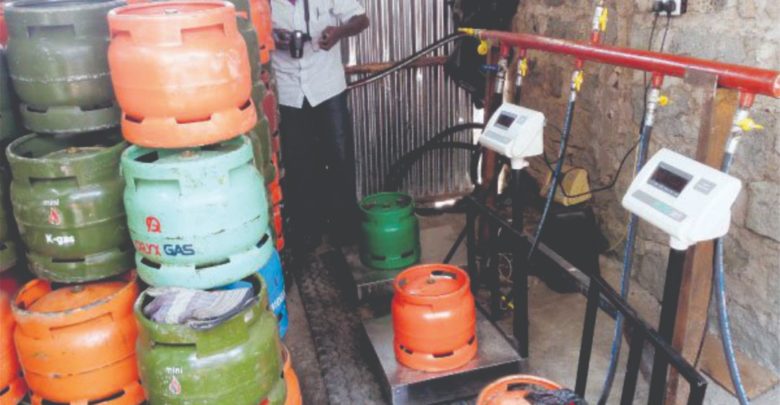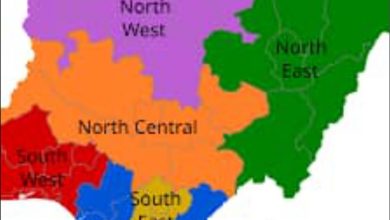Clamdown On Illegal Gas Operators In Akwa Ibom: How Serious Will DPR Be?
By Substance Nature

The issues bothering on unsafe practices and random location of highly inflammable and dangerous product like gas have been with us perhaps for too long, and even condoned in official and unofficial quarters in spite of the potential dangers.
But with the recent closure of about 42 illegal gas stations in Eket, Akwa Ibom State, by the Department of Petroleum Resources (DPR), the red light must have been shown to other places across the State. One can only hope that the crusade to sanitize the system and circumvent the avoidable will not be a flash in the pan, disappearing in the manner it came because of the Nigerian factor.
According to the Controller of Operations, Tamunoiminabo Kingsley-Sunday, the number of gas stations that were shut down was an accumulation of defaulters covering the months of January and February, 2020. He said the unit was stung into action having observed in recent times the carelessness and wantonness with which operators in this line of business toyed with fire, taking life for granted in the name of doing business. The target therefore was to ensure that 80 percent of illegal gas stations shall have vacated Akwa Ibom State.
RELATED: Random Location of Cooking Gas Sales Outlets in Akwa Ibom: A Looming Danger
Categorically, some of the illegal practices by the operators include random location of gas outlets or illegal filing points; over decorating the shops with nozzles without sufficient ventilation; refilling gas cylinders in shops than at the depots; and flouting of other related basic and safety measures.
It is good and commendable that the DPR has stepped up its game, and pragmatically too. But the claim by the DPR boss that 80 percent of illegal operators have relocated from the state sound but curious, exaggerated and highly debatable. The direct opposite appears to be the case. Gas service stations in a place like Uyo, the Capital City, that ought to be a model for this campaign, can simply be described as ubiquitous. This is made worse by the fact that they are between high population density areas and clustered line of shops –and are increasing by the day.
As part of steps aimed at curbing a degeneration or proliferation of this toxic illegality, Mr Kingsley-Sunday said, apart from the action of sealing up such places, every existing and prospective interests, henceforth, shall be made to comply with required operating standards. The DPR controller who also cautioned landlords against giving out their stores without caring to know what business shall be run there. But how possible is that?
Of course, the DPR must accept that it has not done enough in the area of publicity and coordination with relevant stakeholders. Whereas one can neither pre-empt the action plan of DPR nor critically probe its statistics, it is good to advise that it is too early to gloat the purported achievements said to have been recorded, so far.
This is against the backdrop that to be forearmed is to be forewarned. Publicity for the exercise has been observably low on conventional or social media platforms. For the sake of awareness creation, it will be most effective and far-reaching if DPR extends its tentacles of awareness through jingles on radio, pamphlets, seminars, collaboration with relevant government agencies, NGOs and students, etc were made integral partners in the process.
Stopping the menace of illegal filing stations cannot achieve maximum success without a strong synergy deliberately created by stakeholders. Many on this line of business do what they do out of necessity and ignorance than any inclination for breaking laws. It must not be counted as achievements merely shutting down gas service shops when no conscious efforts were made to help the supposed defaulter aware of the dangers involved or exposed to opportunity to know of the basic operational guidelines.
Gas is basically made up of combustible components like propane and bulane, which simply means that it takes less than a split second for it to explode and spiral over a distance. Gas could easily leak into the hovering breeze without being detected. It has also been proven that the odour from gas can cause irritation in the nose and throat, vomiting, nausea, dizziness and even loss of consciousness – and life in extreme cases. It can also be a source of allergy, whereby inhaling it at high concentration even for a short time can cause death, especially to the asthmatic and hypertensive.
The Kaduna ugly model of how deadly gas could be when misused ought to have served some monumental lessons. That day, Saturday, January 4, 2020 in Sabon Tasha, a business premises located along the Kacha Road in Chikun Local Government Area of the State, dreams and property were burnt into ashes, with the Chairman of Nigeria Atomic Energy Commission, one Professor Simon Mallam, who in a salon with his grandson being the worst casualties.
If DPR can stop unsafe and illegal gas practices, it is time it did so without fear nor favour, for the safety of life.




